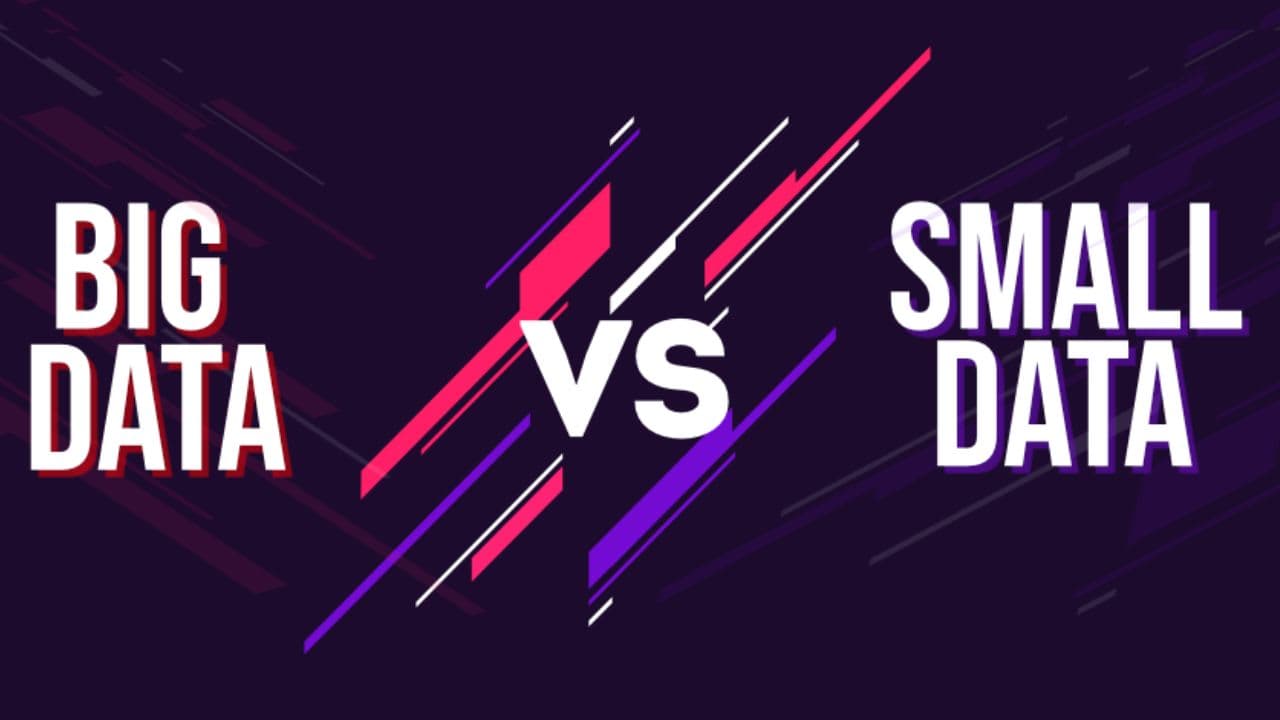11 Best Big Data Books in 2024 [Beginners and Advanced]
Benefits of Big Data
Take a moment to look around yourself. You can see that you are surrounded by data. Whether you are consciously aware of it or not, you are constantly dealing with data in one way or another. Sharing a photo of your puppy on social media, purchasing a pair of new shoes online, and using GPS to get to your friend’s housewarming party are just a few examples.
Data is the blood running in the digital economy and many modern innovations but all data is not created equally. Some data, commonly known as big data, is so large and complex that it requires advanced techniques to be analyzed.
Let’s take a closer look into this powerful asset and highlight the loads of benefits it can offer to modern industries. We will also provide you with real-life examples to illustrate its tangible power.
Definition of Big Data
To put it simply, big data is a type of data that is too vast and complex to be dealt with by traditional methods. There’s no way to come up with a fixed definition for big data, because it depends on the context and the capabilities of the available technologies. This is where the three Vs come to the rescue to characterize this concept: volume, variety, and velocity.
Volume
In terms of scale, big data is massive and usually exceeds the storage capacity of traditional databases. Forget about kilobytes and megabytes, and say hello to terabytes, petabytes, or even exabytes when dealing with this data giant. Take Facebook as an example, it generates about 4 petabytes of data per day from its 2.8 billion monthly active users.
Variety
Big data doesn’t have just one fixed shape, instead it comes in various formats. Structured data, semi-structured data, and unstructured data are all different disguises that big data adopts. For example, Netflix collects data from multiple sources such as user profiles, ratings, reviews, viewing history, device information and many more.
Velocity
Big data is like a tsunami of information flowing in at an impressively high speed. It often involves real-time or near-real-time data streams which need fast and timely analysis. Twitter handles about 500 million tweets per day, which need to be processed and displayed in a matter of seconds.
Historical Context of Big Data
You might be surprised to know that big data has been around for centuries. In fact, in the 19th century, the US Census Bureau used mechanical tabulating machines to process census data faster and more accurately. But those machines, like many other technologies at the time, were limited. They could only handle a few thousand records at a time.
Today, we have computers that can process billions of records in no more than seconds. This has led to an explosion in the amount of data that we generate. Every day, we create terabytes of data from our smartphones, our computers, and our sensors which can tell us a lot about ourselves, our world, and our future.
Industry-wise Benefits of Big Data
In every industry, big data is being used to gain insights, improve decision-making, and create value. Here are just a few examples:
Technology and IT
Technology and IT companies use big data to optimize their infrastructure, perform predictive analysis, and improve customer experiences. Thanks to big data, Google powers its search engine, Gmail, YouTube, Maps, and other services that we use on a daily basis and can’t imagine life without.
Healthcare
You might not know how much your health and your loved ones’ health is dependent on big data. Delivering personalized treatments, formulating new drugs, and tracking pandemics including the very recent COVID-19 are all possible with the help of this superhero.
Retail
When it comes to retail, big data can act as a crystal ball. retailers can use it to see into the future and make better decisions about what products to stock, how much to price them, and when to run promotions. It also helps retailers to personalize the shopping experience for each customer and make them feel like they’re the only one in the store.
Finance
Big data is changing the world and it even influences the way we bank. Financial institutions employ big data to identify patterns of fraudulent activity and prevent them. It also can be used to assess the risk of lending money to borrowers. What’s more, algorithms analyze vast datasets to identify irregular patterns and make rapid trading decisions.
Transportation
No matter how you go from A to B, whether you drive your own car, take a bus, or take an Uber, you are benefiting from big data. Big data helps analyze traffic patterns, predict maintenance needs in vehicles, plan efficient routes, and even reduce accidents.
Agriculture
It might seem ironic but as one of the oldest industries in the world, agriculture benefits from the most modern advancements of big data. Today, Farmers collect and analyze data from sensors, satellites, and drones to predict crop yield, forecast weather impact, and monitor soil health.
Real-life Case Studies
Here are some real-life case studies to illustrate the huge impact of big data on different industries:
How Netflix Knows You Better Than You Know Yourself
How does Netflix know you so well that it can recommend TV shows to you that make you sit in front of the TV for hours and hours? Of course, big data is playing an important role behind the scenes.
Netflix collects and analyzes data from user profiles, ratings, reviews, viewing history, device information, etc. It then uses artificial intelligence and machine learning algorithms to process this data and generate personalized recommendations for each and every user.
Netflix claims that its recommendation system accounts for more than 80% of the content watched by its users and its recommendation system saves it $1 billion per year by reducing customer churn.
Mount Sinai’s Prescription for Better Health Outcomes
As one of the largest healthcare providers in the US, Mount Sinai Health System has eight hospitals and more than 400 ambulatory sites.
It uses big data to create predictive models and risk scores for various clinical outcomes, such as readmission, mortality, and sepsis. It also uses this data to identify gaps in care, optimize resource allocation, and implement quality improvement initiatives.
Mount Sinai’s efficient big data approach has reduced its 30-day readmission rate by 56%, its mortality rate by 25%, and its length of stay by 0.7 days.
Amazon’s Secret Sauce for Customer Happiness
We can all agree on the fact that Amazon’s customer service experience is second to none. But what many people don’t know is that Amazon uses big data to power its customer service operations.
Here’s how it works: Amazon collects data from a variety of sources, including customer orders, reviews, feedback, and preferences. It then uses this data to forecast demand, manage inventory, optimize pricing, automate logistics, and enhance delivery.
Amazon’s big data strategy has helped the company to reduce its inventory costs by 10%, its shipping costs by 20%, and its delivery time by 30%.
Potential and Future Scope
As we step into the future, the need for new technologies to harness the power of big data will rise dramatically. This is where quantum computing comes to the rescue. Quantum computing is still in its infancy stage but has made significant progress in recent years and is expected to advance even more rapidly in the upcoming years.
Big data is getting more advanced and so do its ethical challenges. We should be well-informed about this rather unwanted side of big data as well to protect ourselves against it. Track people’s movements, monitoring their activities, and predicting their behavior are all possible using big data.
Frequently Asked Questions (FAQs)
What is big data?
Big data is a term that defines very large and diverse collections of data. Three Vs are often used to distinguish big data: the Volume of information, the Velocity or speed, the Variety or scope.
How is big data different from traditional data?
The size, diversity, and rate of growth are three key elements that differentiate big data from traditional data. Traditional data is more than often structured and comes from a limited number of sources. Big data, on the other hand, encompasses both structured and unstructured information from many different sources.
Which industries benefit the most from big data?
Big data opens up plenty of opportunities for all industries that are able to utilize it efficiently. Several industries like technology, healthcare, finance, retail, and transportation stand to gain significantly from the use of big data.
Are there any challenges or drawbacks to using big data?
Apart from the sheer volume and complexity of big data that can be daunting, data privacy, issues with data quality, and the requirement for specialized skills in advanced analytics have caused concerns for various organizations and individuals alike.
How is big data secured?
A combination of encryption, access controls, and data governance measures safeguards big data. These cybersecurity mechanisms prevent unauthorized access and data breaches in order to guarantee both the integrity and confidentiality of the data.
What tools are commonly used to process big data?
Tools like Hadoop, Spark, Hive, Kafka, Storm, and NoSQL databases are widely used for this purpose.
How can a company get started with big data?
To do so, a company should first establish clear objectives. Then they need to obtain the necessary tools and assemble a team of data professionals. It’s always a good idea to begin with small-scale projects and little by little expand and improve.
Conclusion
Big data is changing the world around us by revolutionizing industries across the board. Embracing data-driven strategies and understanding the nuances of big data is vitally important for organizations seeking to thrive in this day and age.
Hopefully, by reading this article you have gained the basic knowledge about this invaluable tool. Now it’s time to take the next step for further exploration and dive deeper into its realm. If you need more resources to accompany you throughout this journey, feel free to contact us.
![11 Best Big Data Books in 2024 [Beginners and Advanced]](/_next/image/?url=https%3A%2F%2Fres.cloudinary.com%2Fdvzkzccvn%2Fimages%2Ff_auto%2Cq_auto%2Fv1697123039%2F11-Best-Big-Data-Books-in-2023-Beginners-and-Advanced-1%2F11-Best-Big-Data-Books-in-2023-Beginners-and-Advanced-1.jpg%3F_i%3DAA&w=3840&q=75)

